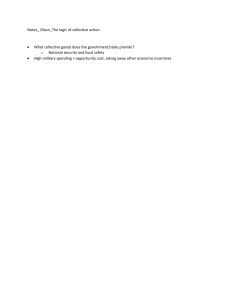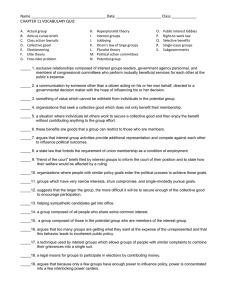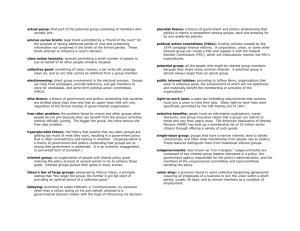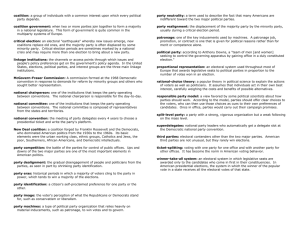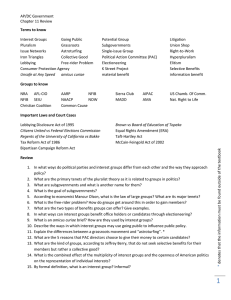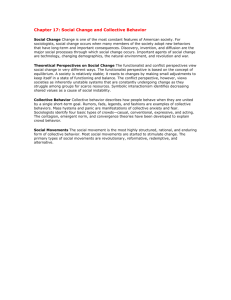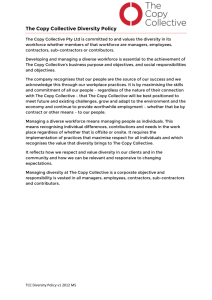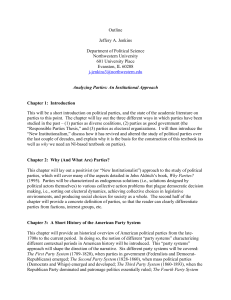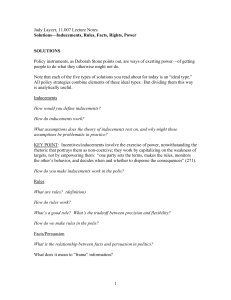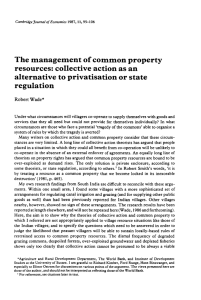Interest Groups Vocabulary
advertisement
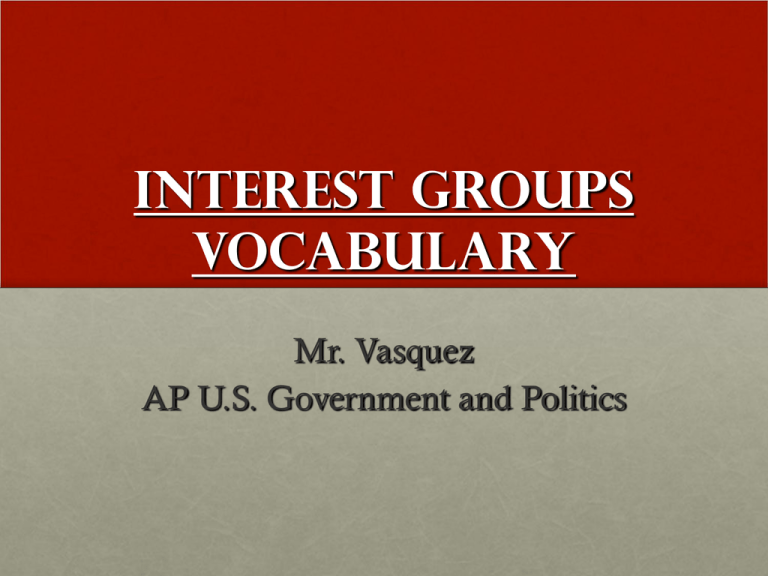
Interest Groups Vocabulary Mr. Vasquez AP U.S. Government and Politics Linkage institutions • DEFINITION: The channels through which people’s concerns become political issues on the government’s policy agenda. In the U.S., linkage institutions include elections, political parties, interest groups, and the media. Rational-choice theory • DEFINITION: A popular theory in political science to explain the actions of voters as well as politicians. It assumes that individuals act in their own best interest, carefully weighing the costs and benefits of possible alternatives. Party machines • DEFINITION: A type of political party organization that relies heavily on material inducements, such as patronage, to win votes and to govern. patronage • DEFINITION: One of the key inducements used by party machines. A patronage job, promotion, or contract is one that is given for political reasons rather than for merit or competence alone. Winner-take-all system • DEFINITION: An electoral system in which legislative seats are awarded only to the candidates who come in first in their constituencies. Proportional representation • DEFINITION: An electoral system used throughout most of Europe that awards legislative seats to political parties in proportion to the number of votes won in an election. Party identification • DEFINITION: A citizen’s selfproclaimed preference for one party or the other. coalition • DEFINITION: A group of individuals with a common interest on which every political party depends. Interest group • DEFINITION: An organization of people with shared policy goals entering the policy process at several points to try to achieve those goals. subgovernments • DEFINITION: A network of groups within the American political system that exercise great deal of control over specific policy areas. Free-rider problem • DEFINITION: The problems faced by unions and other groups when people do not join because they can benefit from the group’s activities without officially joining. The bigger the group, the more serious the problem. Collective good • DEFINITION: Something of value (money, a tax write-off, prestige, clean air, and so on) that cannot be withheld from a group member. Olson’s law of large groups • DEFINITION: Advanced by Mancur Olson, a principle stating that “the larger the group, the further it will fall short of providing an optimal amount of a collective good.” Single-issue groups • DEFINITION: Groups that have a narrow interest, tend to dislike compromise, and often draw membership from people new to politics. These features distinguish them from traditional interest groups. lobbying • DEFINITION: According to Lester Milbrath, a “communication, by someone other than a citizen acting on his own behalf, directed to a governmental decision maker with the hope of influencing his decision.” electioneering • DEFINITION: Direct group involvement in the electoral process. Groups can help fund campaigns, provide testimony, and get members to work for candidates, and some for political action committees. Political action committees (pacs) • DEFINITION: Political funding vehicles created by the 1974 campaign finance reforms. A corporation, union, or some other interest group can create a PAC and register it with the Federal Election Commission, which will meticulously monitor the PAC’s expenditures. Union shop • DEFINITION: A provision found in some collective bargaining agreements requiring all employees of a business to join the union within a short period, usually 30 days, and to remain members as a condition of employment. Right-to-work law • DEFINITION: A state law forbidding requirements that workers must join a union to hold their jobs. State right-to-work laws were specifically permitted by the Taft-Hartley Act of 1947. Public interest groups • DEFINITION: According to Jeffrey Berry, organizations that seek “a collective good, the achievement of which will not selectively and materially benefit the membership or activities of the organization.
